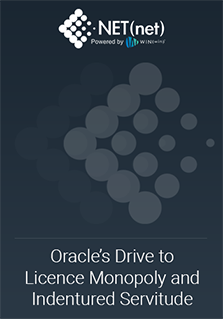Think about the last large thing you purchased. A house, a car, a boat, or, sure, even software. Do you remember the price? Do you remember the number YOU last offered? Would it surprise you to know that more than 70% of the time, it's a round number? And of those round number times, more than 80% of the time, the last several digits (depending on the size of the number) are zeros?
This is because, generally speaking, humans love orderly things, including numbers. Round, whole numbers are easy to deal with in your head. They also don't mask change as well. For example, most people would rather say "$2,500,000" than "$2,494,293". In fact, we even have shorthand to further reduce the memory required to handle the number. As such, we'll say it's 2.5 million - virtually dropping the zeros altogether.
But when you convert to round numbers, you may miss the nuance of a price negotiation. In the example above $5,707 is lost in translation. When we start talking about the Federal deficit, where 12 zeros are the starting point, whole decimal places can be lost. So it's always important to remember that while working with round numbers is easier, the devil is in the details - and so can be the solution - especially if your opponent (or you) cares about that $5,707.
Of course, being decimal-specific isn't always a winning solution either. A cavalier attitude, even when accompanied by absolute specificity, can still yield disastrous results. Just ask Google about their negotiation for the Nortel Network's wireless patents a few weeks ago.
Nortel fell to the pressures of increased competition, exorbitant costs and uncontrolled spending in a declining economy. What remains are their assets, being auctioned off to the highest bidder. Google was but one of many notable players to participate in the most recent auction for 6,000 patents and patent applications.
True to my point above, Google was absolutely specific in their bids. At first blush, they appeared to have been the result of careful planning, thoughtful research and diligent consideration.
First bid: $1,902,160,540
Second bid: $2,614,972,128
While they appeared extraordinarily precise compared with the round-number bids of their auction competitors, it wasn't until the third round where the non-math wizards among us got wise to Google's offer of $3.14159 billion.
Look familiar? Sure - it's Pi. And with a quick Google search, you, too can discover that their first bid was Brun's theorem <http://en.wikipedia.org/wiki/Brun's_theorem>, and the second was the Meissel-Mertens constant <http://en.wikipedia.org/wiki/Meissel–Mertens_constant>.
But while the general public probably has an appreciation for Google's oddball modus operandi, the use of these numbers in such a serious context (we are talking about BILLIONS of dollars) seems to suggest that the Google participants weren't treating the auction with an appropriate level of gravitas. In such a situation, there's the likelihood of insulting not only the other participants, but permanently alienating them from wanting to work with you in the future. In fact, Google lost to a consortium of other bidders – a group that was formed by individually bidding participants who banded together to create the highest bid.
Luckily for us, this same auction also allows us to see a real-world application of a party who understood their budget and stuck to it, too, for while Google had $36.7 billion in cash as of March 31, 2011, they refused to increase their bid above $4billion, ultimately losing the auction.
NET(net)’s Website/Blogs/Articles and other content is subject to NET(net)’s legal terms offered for general information purposes only, and while NET(net) may offer views and opinions regarding the subject matter, such views and opinions are not intended to malign or disparage any other company or other individual or group.
Moral of the story? Select and fight for an appropriate value for the things you want. Don't know the value of what you want? Contact NET(net) and we can help you and your company Find Value, Get Value, and Keep Value in your IT agreements. Contact us today at info@netnetweb.com, by phone at + 1 866 2 NET or visit us online at www.netnetweb.com. Tell us: what other morals of the story do you see in the Google example above?

















